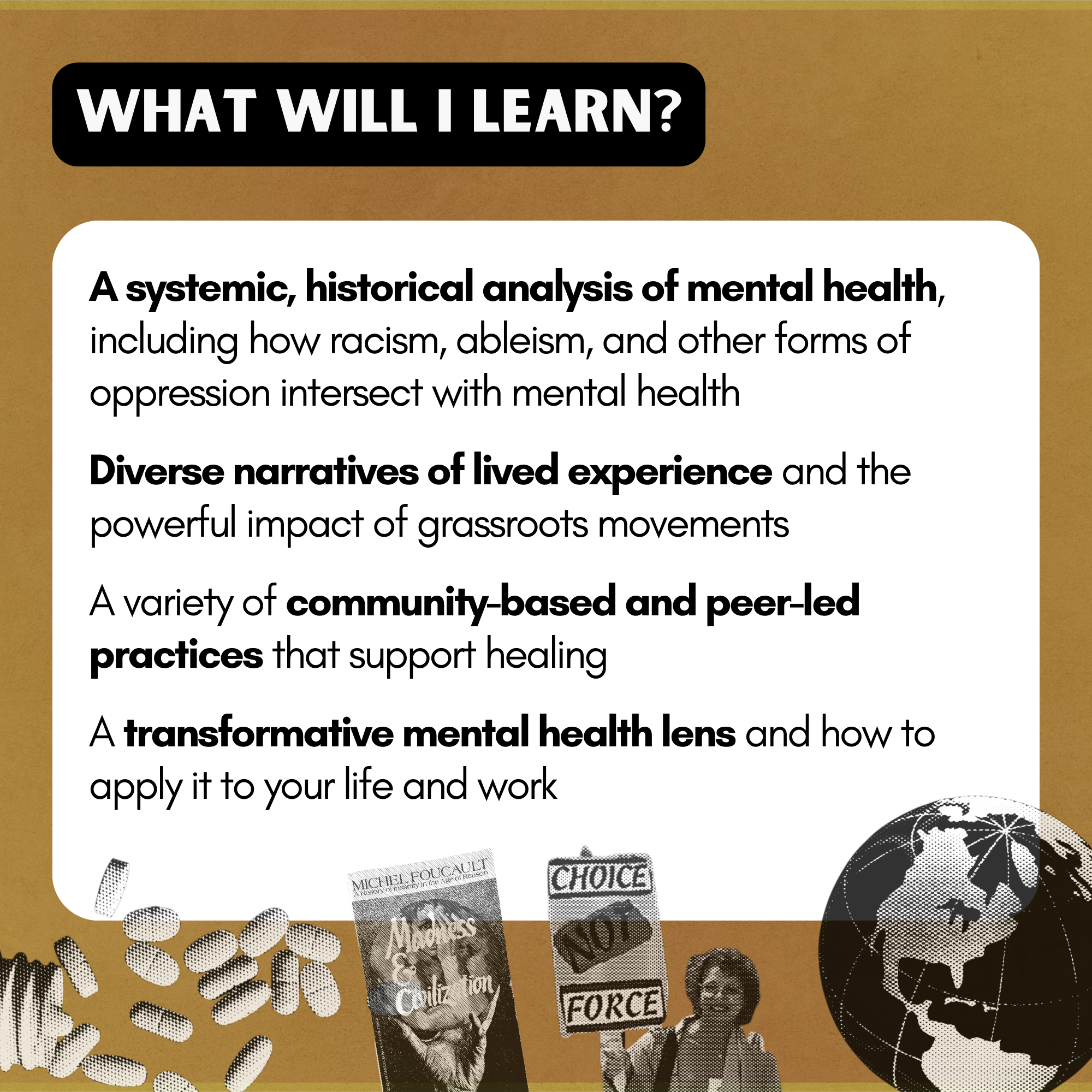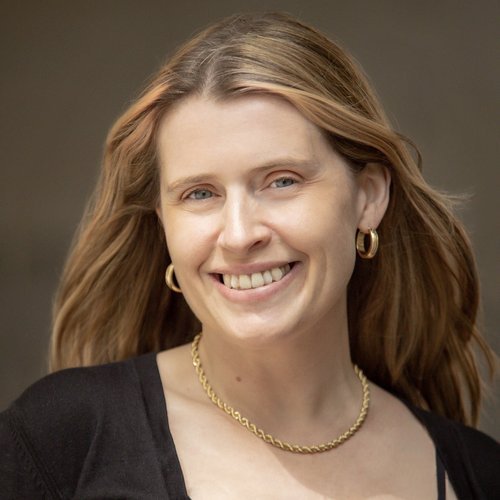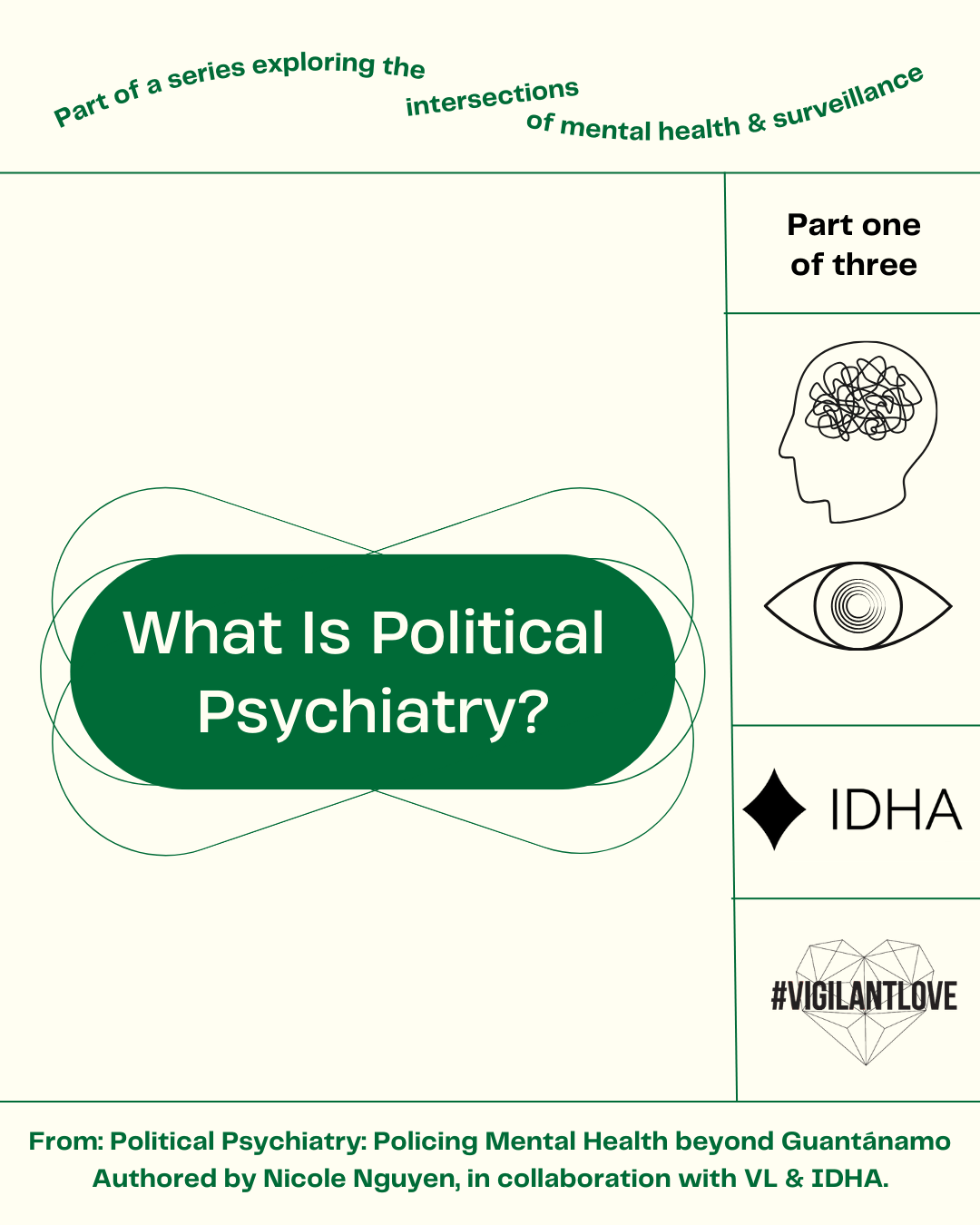Dear IDHA Community,
These times are teeming with pain and grief. We are bearing witness to multiple genocides, escalating climate catastrophe, war, and destabilization. Meanwhile, psychiatric coercion is on the rise within the mental health system, forcing people experiencing oppression into services rather than address the roots of their traumas. All of these dynamics expose a crisis of disconnection on an unprecedented scale, disproportionately impacting those whose identities lie at the margins.
Together with IDHA’s Training Committee, the incredible collective of organizers that dreamed up our forthcoming virtual training series, I’ve spent much of this past year thinking about the antidotes to this mass disconnection — exploring what it looks like to repair and deepen connection within and between each other, our communities, and the Earth in pursuit of a more liberated future. Time and again, I am often struck by how often the IDHA community itself models the qualities that I know are necessary to usher in deeper interconnectedness and more reciprocity.
In trainings, we uplift forms of knowledge and knowing that live not just in our minds, but in our bodies. In community events, we wade into the unknown and embrace uncertainty. In panel conversations, we build bridges across movements, understanding that there is no path forward without an intersectional analysis. In membership gatherings, we practice “polyphony” by holding and validating multiple truths at the same time. In committee organizing, we lean into generative conflict and consider root causes of harm. And in all IDHA spaces, we interrogate expertise, valuing lived and embodied wisdom as highly as professional knowledge.
Every day, I am honored to experience the relationship building work within IDHA that creates the conditions to make healing and systems change more possible. I am very proud to present our 2023 year in review, which provides insight into all that we accomplished this year, with input from dozens of care workers, activists, survivors, artists, and other disruptors.
In the words of bell hooks, “My hope emerges from those places of struggle where I witness individuals positively transforming their lives and the world around them. Educating is a vocation rooted in hopefulness. As teachers we believe that learning is possible, that nothing can keep an open mind from seeking after knowledge and finding a way to know.”
Amid so much heaviness, this is a big part of why I still hold onto hope. I’m grateful you’re here, and look forward to building with you in 2024 and beyond.
In solidarity,






















































